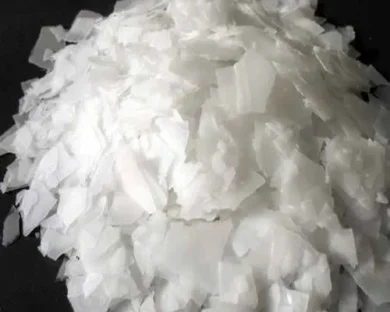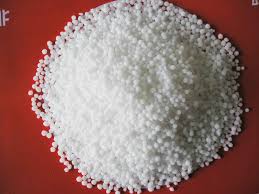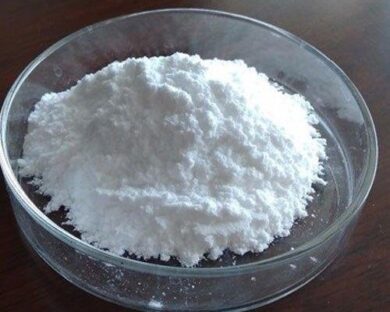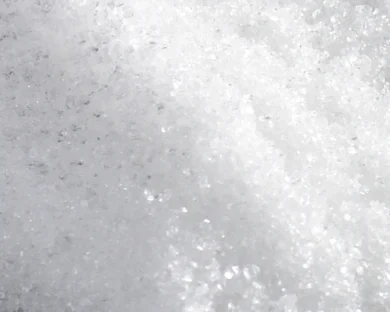Sodium Sulphate
What is Sodium Sulphate
Sodium Sulphate is an important compound of Sodium and is an inorganic chemical obtained by the reaction of a Sodium Salt with Sulfuric acid.
In its anhydrous nature, it is a white crystalline solid with the formula Na2SO4. While the deca-hydrate version of Sodium sulphate has the formula Na2SO4•10H2O, which is popularly known an Glauber's salt. It is also known as Mirabilis as it produced from its ore, which is called Miralbite. 50% of the world's production of Sodium sulphate comes from natural mineral form (which is decahydrate in nature) and the remaining 50% comes from by-products of other chemical processes. Sodium sulphate is not preferred to be manufactured synthetically due to its very low pricing which leads to unviability.
Sodium sulphate is chemically very stable and is unreactive to most of the oxidising and reducing agents at room temperature. It is also a non-toxic chemical with almost negligible Health hazards.
SNDB Chemicals supplies high quality Sodium Sulphate and Glauber Salt at competitive prices. SNDB Chemicals also supplier low grade Sodium Sulphate and it depends on what the customer requests.
Details of SNDB Chemicals Sodium Sulphate can be found below:-
In the realm of industrial chemicals, few substances wield as much versatility and significance as sodium sulphate. With its myriad applications spanning industries from textiles to detergents, this compound stands as a stalwart cornerstone in the foundations of modern manufacturing. Let’s delve into the multifaceted world of sodium sulphate and uncover the myriad ways in which it enriches and enhances our daily lives.
Chemical Composition and Properties:
Sodium sulphate, also known by its chemical formula Na2SO4, exists primarily in two forms: anhydrous (without water) and decahydrate (with ten molecules of water). This inorganic salt boasts a crystalline structure and is typically odorless, making it ideal for a range of industrial applications.
Industrial Applications:
1. Textile Industry:
In the textile industry, sodium sulphate plays a pivotal role in dyeing processes. Acting as a leveling agent, it helps to ensure uniform dye penetration, resulting in vibrant and consistent colors across fabrics. Additionally, sodium sulphate aids in the removal of excess dye, thereby improving the overall efficiency of the dyeing process.
2. Paper Industry:
The paper manufacturing process relies heavily on sodium sulphate as a pulping agent. By breaking down lignin and cellulose fibers in wood pulp, sodium sulphate facilitates the production of high-quality paper with enhanced strength and durability. Moreover, it serves as a pH buffer, contributing to the stability of the papermaking process.
3. Detergent Manufacturing:
In the realm of household cleaning products, it finds widespread use as a filler and viscosity modifier in detergent formulations. Its ability to enhance the flow properties of liquid detergents ensures optimal dispensing and distribution during usage. Furthermore, it acts as a water softener, helping to improve the efficacy of cleaning agents in hard water environments.
4. Glass Industry:
Sodium sulphate serves as a flux in the production of glass, where it helps to lower the melting point of silica, the primary component of glass. By promoting the fusion of raw materials at lower temperatures, it enables energy savings and enhances the efficiency of glassmaking processes. Additionally, it aids in the removal of bubbles and impurities, resulting in clearer and higher-quality glass products.
5. Chemical Synthesis:
Beyond its role in specific industries, it serves as a precursor for the synthesis of various chemical compounds. Its reactivity with other substances allows for the production of sulfates, sulfides, and sulfuric acid, all of which have diverse applications across different sectors, including pharmaceuticals, agriculture, and water treatment.
Quality Assurance and Compliance:
In the manufacturing and distribution of sodium sulphate, stringent quality control measures are paramount to ensuring product integrity and compliance with industry standards. Quality assurance protocols encompass aspects such as purity levels, particle size distribution, and moisture content, all of which contribute to the overall performance and efficacy of sodium sulphate in its intended applications. Additionally, adherence to regulatory guidelines and environmental protocols underscores the commitment of manufacturers to sustainable practices and responsible stewardship of resources.
Contact us for Details of SNDB Chemicals.




